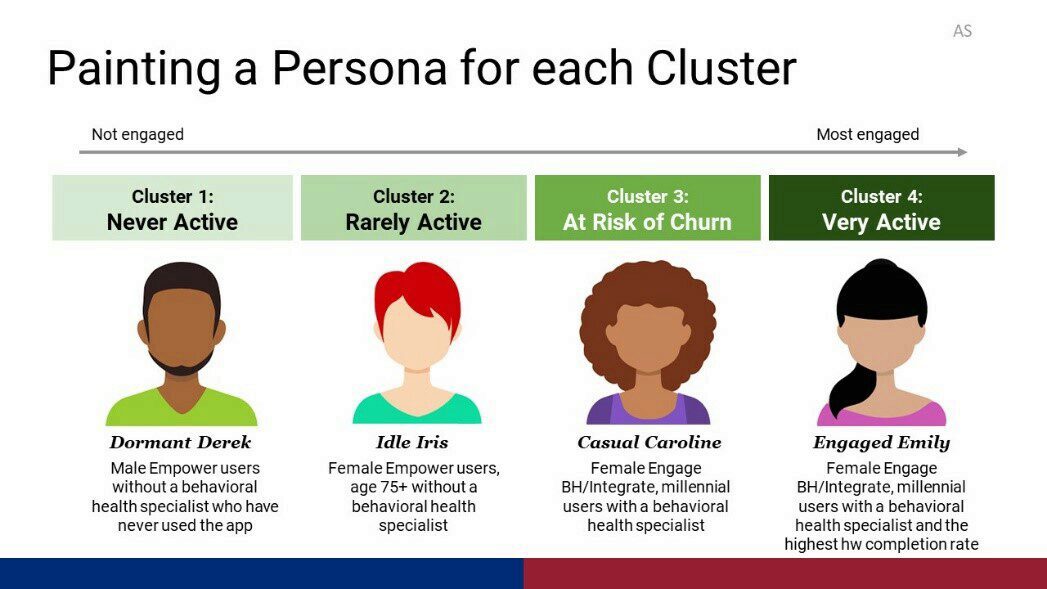Customers of A Feather Engage Together:
Using K-Means Clustering to Maximize Retention

Objective
NeuroFlow is a healthcare technology and analytics company enabling behavioral health access and engagement to improve outcomes, overall wellness, and costs of care. High user engagement rates set NeuroFlow apart from the increasingly crowded mental health market. The company partnered with the Analytics Accelerator to use data analytics to further optimize the in-app experience and build upon its retention to ultimately drive improved user outcomes when it comes to behavioral health. NeuroFlow asked their team – comprised of Penn and Wharton students ranging from undergraduates to MBAs – to build a statistical model to detect users with a low likelihood of retention and identify which product designs, promotional offerings, or custom reminders, would potentially retain those customers.
Approach
The team conducted exploratory data analysis and experimented with several statistical models (i.e., BG/NBD, logistic regression, random forest, and k-means clustering) to segment user journeys. A cluster analysis was best suited to predict user retention and identified four distinct groups (See Figure 1).

Solution
The team was able to identify ways to convert rarely active users into very active users using k-means clustering and a random forest model. The models determined the degree of likelihood that a customer would be retained and identified which particular app notifications were most effective at maximizing retention. Additional insights uncovered correlations between patient features and retention such as demographics of users who interacted with the app in certain ways (e.g., engaging more with particular activities offered in NeuroFlow).
Recommendations
- Monitor homework completion rate as a potential indicator of retention.
- Assign inactive customers a behavior health specialist.
- Adapt specific product offerings to align more closely with engagement KPIs.
- Convert remaining SMS notifications to push or email notifications.
“It was great to have a fresh set of eyes in thinking about user engagement and retention. In a short amount of time, the team was able to effectively connect the dots between patterns in the data with actionable product recommendations we could test.”
Bill Lynch
Director of Data Science at NeuroFlow
Impact
In the months following the Analytics Accelerator, NeuroFlow adopted the team’s recommendations and utilized the findings to:
- Inform A/B Testing. NeuroFlow implemented a new testing infrastructure and has begun testing across different channels and themes.
- Enhance features within their platforms. NeuroFlow launched a feature that drives customers to work with a behavior health specialist, leading to increased engagement and business growth.
- Further qualitative and quantitative research and discovery. NeuroFlow integrated the internal data team into the product development business process to strengthen its core offerings.
About the Analytics Accelerator
Every fall and spring semester, Analytics at Wharton hosts the Analytics Accelerator, an experiential learning program that pairs students with a company to solve a real-world business problem using the company’s actual datasets and the latest techniques including machine learning and AI.


